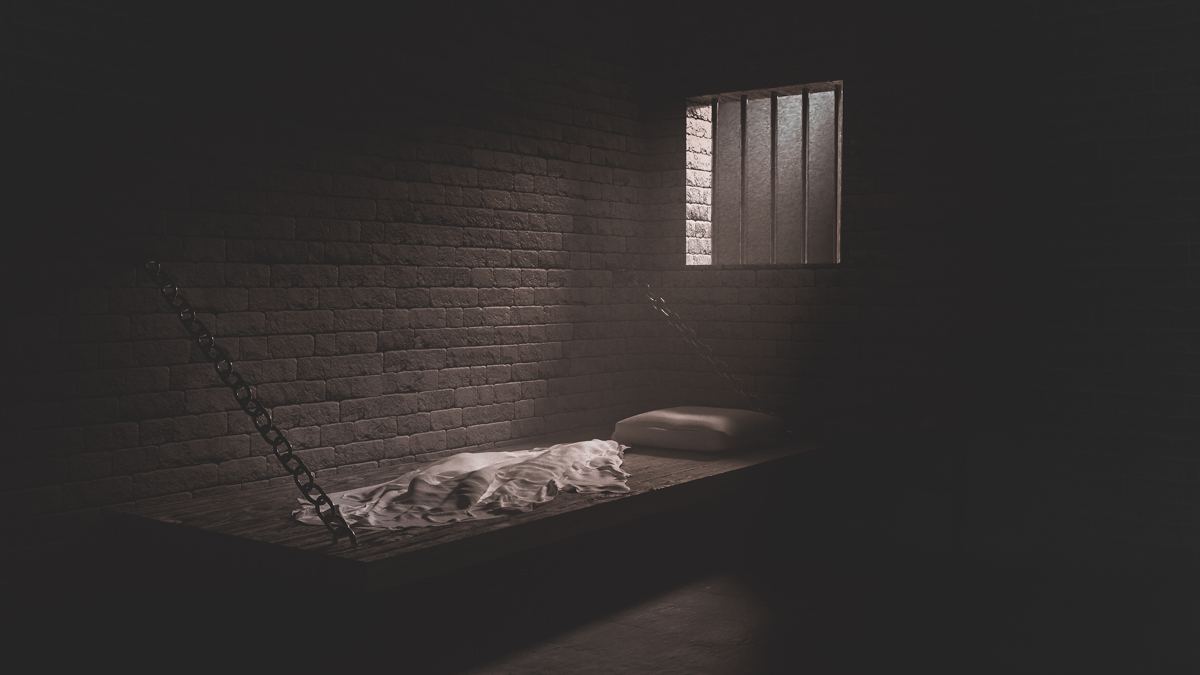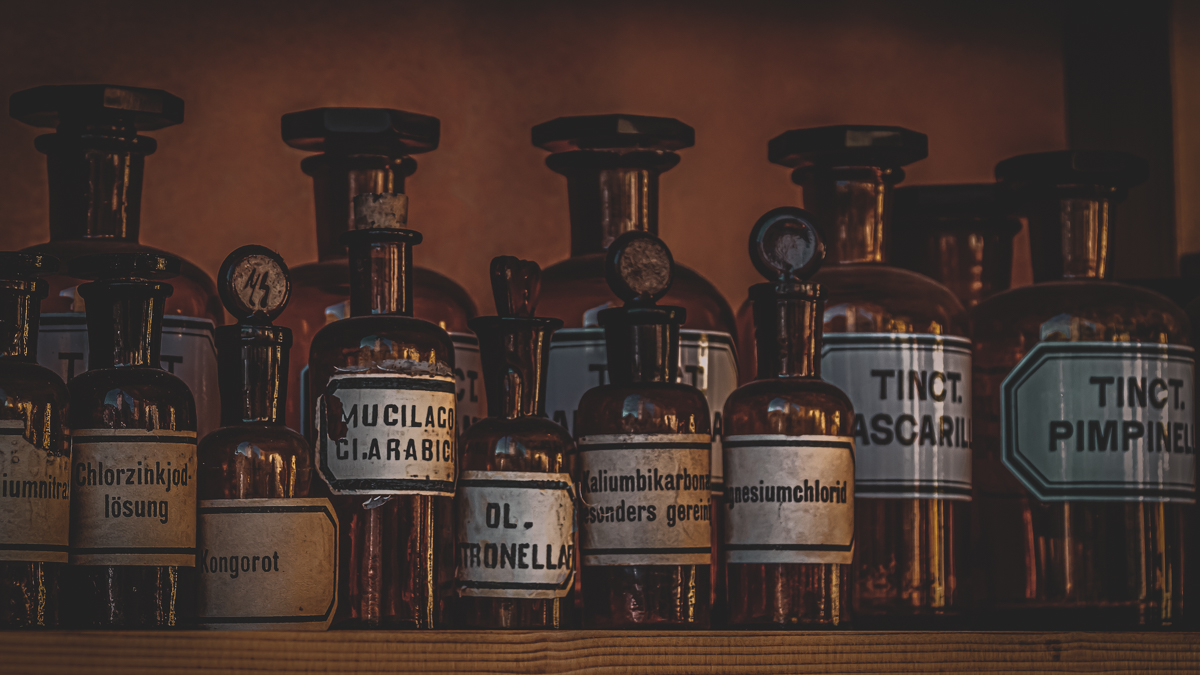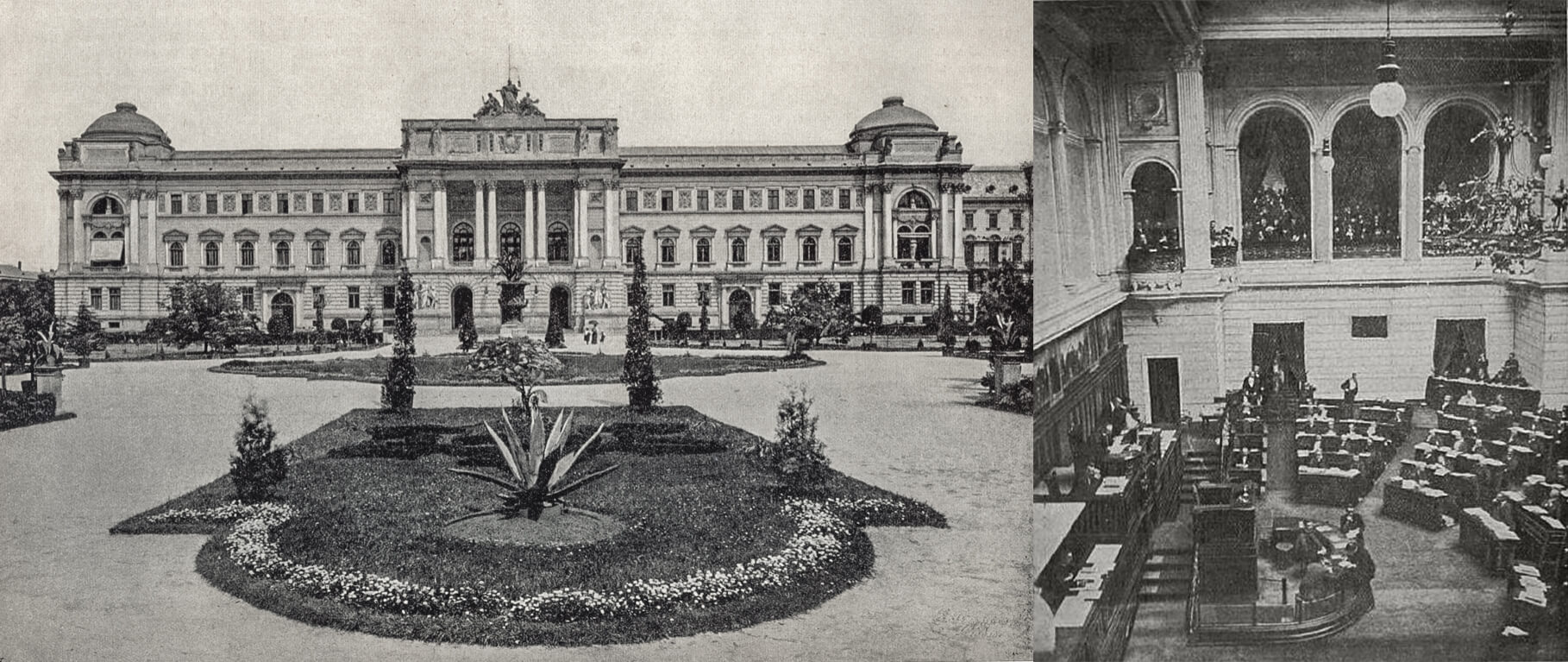Ignacy Łukasiewicz
Jan Boży Józef Ignacy Łukasiewicz was born on 8 March 1822 in Zaduszniki near Mielec. He was the son of Józef Łukasiewicz and Apolonia former Świetlik. He had six siblings – four brothers: Aleksander, Franciszek, Józef Jakub and Jakub Józef Ignacy, and two sisters: Emilia and Maria. Ignacy’s father was most probably a lessee of Zaduszniki, Zachwiejowa and Czajkowa. In 1830, the entire family left Zaduszniki and moved to Rzeszów.

In 1832 Ignacy Łukasiewicz took up his education at the Piarist junior high school of Rzeszów, his elder brother Franciszek had already been attending for a year. Ignacy was a very diligent student, however his parents could not afford to pay for education of both sons. It was decided that only Franciszek would be studying. Ignacy completed four grades, and in June 1836 at the age of fourteen he was taken in as an apprentice at a pharmacy of Antoni Swoboda of Łańcut. Soon Ignacy lost his father, who died in November 1836.
Since 1840, Ignacy has been in contact with the independence conspiracy. Back then, he got in touch with a member of the November uprising Antoni Tarłowski, who, however, soon got arrested. Although he denounced no one, in Łukasiewicz’s personal file there appeared a note “politically suspicious”. In 1841, he moved to Rzeszów, where he started working at Hübel’s pharmacy. When in 1844 Edward Dembowski was rebuilding the Galician conspiracy, Łukasiewicz became “a revolution agent” in the territory of Rzeszów and Łańcut.

The conspirators were planning to uprising to break out in the night of 21/22 February 1846, however Austrian authorities prevented that from happening. Like his fellows, Ignacy Łukasiewicz was arrested on 19 February 1846. Despite finding forbidden works belonging to Ignacy, the Austrians were unable to prove his involvement in the conspiracy. After he had spent almost two years in prisons in Rzeszów and Lviv, the court discharged Łukasiewicz, and on 27 December 1847 he was able to leave prison. He got, however, police curfew, and was unable to leave Lviv.
When discharged from prison, Ignacy moved in with his brother Franciszek in Lviv. He remained unemployed for almost 8 months. Finally, on 18 August 1948 he started working at “Pod Złotą Gwiazdą” pharmacy as a pharmaceutical assistant, where he would note down formulas in an almanac called “The Manuscript”. With the intercession of his boss Piotr Mikolasch, on 15 September 1850, he took up studies at the Faculty of Philosophy of the Jagiellonian University, which had a pharmaceutical college. Having completed a two year study course in Cracow and Vienna, Ignacy Łukasiewicz, Master of Science in Pharmacy, came back to work at the Lviv pharmacy, where he took a pharmacist job.

End 1854, Łukasiewicz moved to Gorlice. He took over a pharmacy there, and he would work as a pharmacist, a toxicologist, a chemist and a biologist. He has been given a major credit for his achievements in fighting the cholera pandemics in 1855, when he was treating everyone with outmost dedication. Early 1857, Łukasiewicz leased a second pharmacy in Jasło, whereto he moved on a permanent basis end 1858. On 20 April 1857 in Gorlice, he married his niece Honorata Stacherska.
After he had come back from his studies, Ignacy Łukasiewicz together with Jan Zeh begun working on distillation of crude oil. End 1852 / early 1853, they managed to obtain paraffin oil with fractional distillation method. Later on, in cooperation with a Lviv tinsmith Adam Bratkowski, Łukasiewicz build a paraffin oil lamp, which lighted up at the pharmacy in March 1853.

After he had moved to Gorlice in 1854, the inventor went into partnership with Tytus Trzecieski, and on the land on Karol Klobassa in Bóbrka near Krosno, he established the world’s first paraffin oil mining plant. In 1855, a major oil deposit was discovered there. In 1855, a major oil deposit was discovered there. In 1859, Łukasiewicz went into partnership with Apolinary Zieliński and his brother Eugeniusz, to drill oil in Klęczany, soon, however, they went their separate ways. In the years to come, after a death of his daughter and a fire at the Ulaszowice distillery, he bought the village of Chorkówka with an adjacent manor, where he moved in with his wife, and he built a refinery. In 1868-1881, he initiated the establishment of oil mining plants in Ropianka, Wilsznia, Smereczne, Ropa and Wójtowa.
With the profits of Bóbrka, Trzecieski and Łukasiewicz were able to financially support members of the January uprising in 1863. In 1868, Ignacy became a member of local self-government authorities, 8 years later he was elected a member of the Galician Sejm [a MP of Galicyjski Sejm Krajowy] of the fourth term of office. He was involved with the democratic party, centred around Franciszek Smolka. Łukasiewicz’s utmost priority, both at local self-government, and Sejm level, was to reduce the “Galician poverty”. Because of his profession, in the Sejm he was mainly a spokesman for oil affairs – he contributed among others to the establishment of a Mining Council.

After he had made a fortune in the oil business, he developed his charity work. He would provide financial support and protection to peasant sons taking up education, he would provide construction wood to peasants, he would treat them free of charge, lend them money to keep their horses. In Chorkówka, he organised a local school class. As one of a very few landowners, he would not produce vodka, and he would fire people for heavy drinking. In 1868, he established an insurance institution at the Bóbrka mine – a brotherhood aid facility. He would put a lot of stress on education – in 1875 he helped his wife organise a lace making school for girls in Chorkówka. He also organised and financed common schools in Chorkówka, Bóbrka and Zręcin. Together with Klobassa, he also financed construction of a church in Zręcin.

